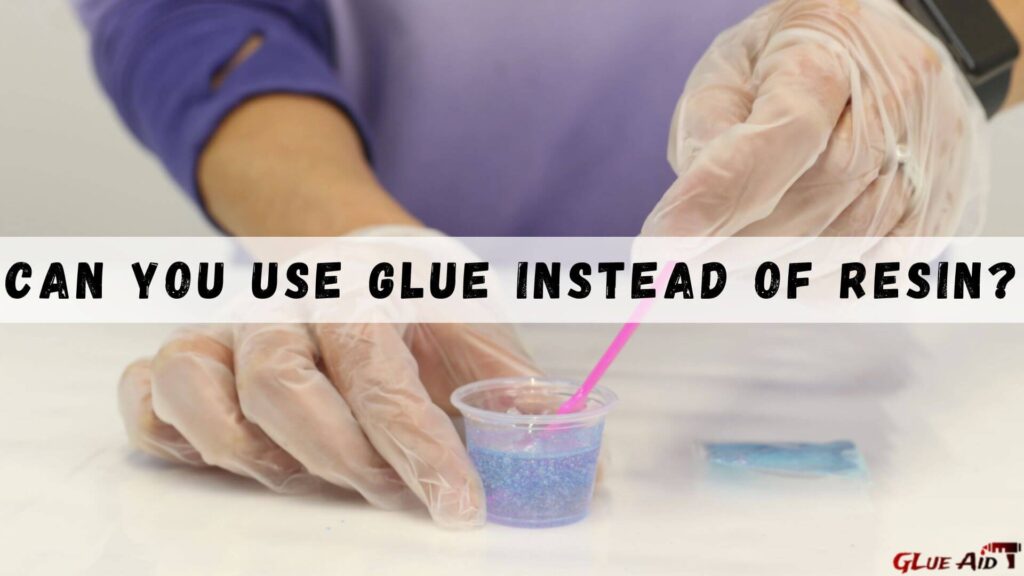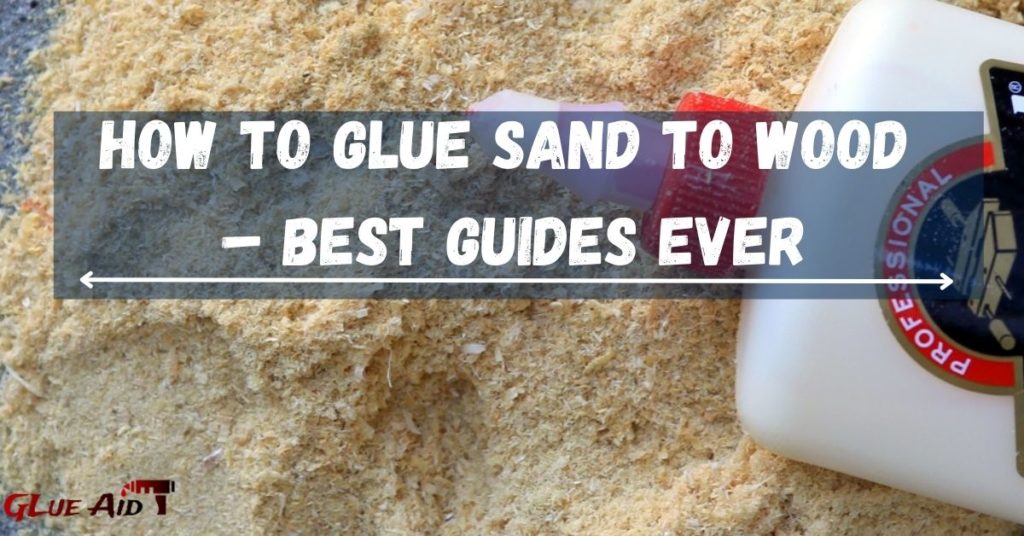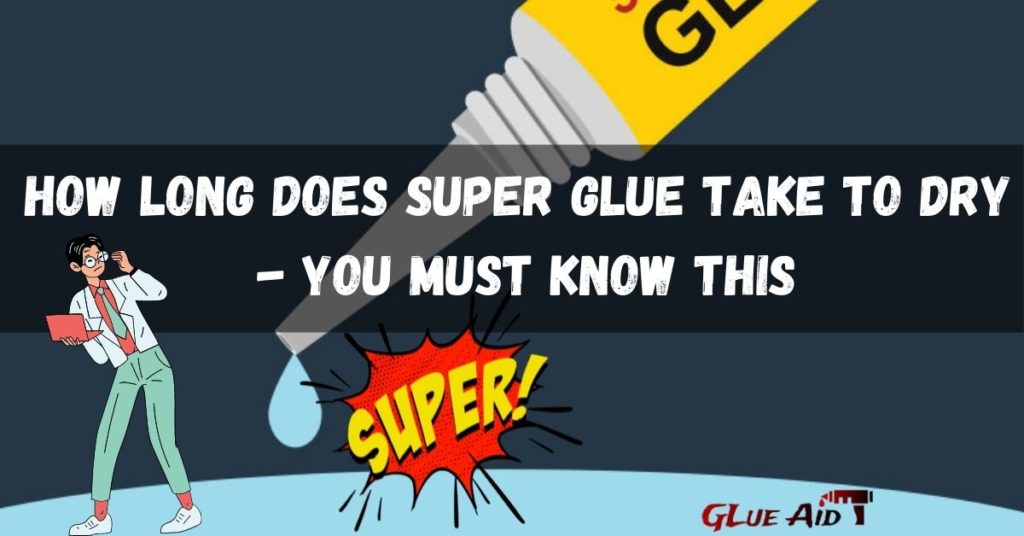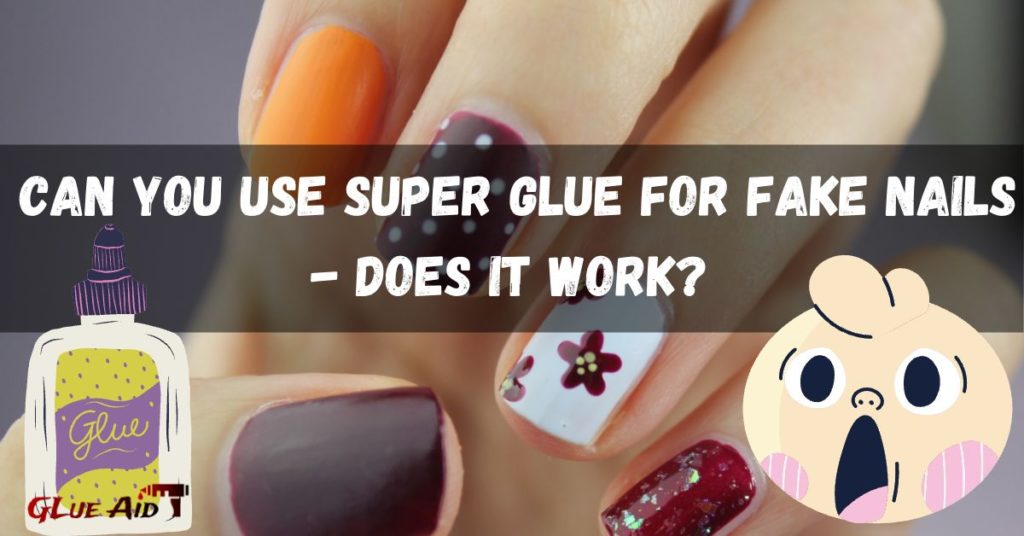In recent years, many people have begun to wonder if they can use glue instead of resin. After all, both are clear and both can be used to adhere two pieces of material together. However, there are some very important differences between these two substances that you should be aware of before making a decision. Here we will discuss whether can you use glue instead of resin or not.
Table of Contents
Can You Use Glue Instead Of Resin?

If you’re looking for a quick fix to attach two pieces of material together, you might be wondering if you can use glue instead of resin. The short answer is yes, but there are some things you should know before making the switch.
Glue is not as strong as resin, so it’s not ideal for materials that will be under a lot of stress or pressure. It’s also not as waterproof as resin, so it’s not the best choice for outdoor projects. And finally, glue doesn’t have the same clear finish as resin, so it might not give your project the professional look you’re going for.
So if you’re looking for a strong, waterproof, and clear adhesive, the resin is the way to go. But if you’re in a pinch and need to attach two materials quickly, the glue will do the trick.
The Similarities Between Resin And Glue
Resin and glue are both materials that are used for a variety of purposes. They are both made from a variety of materials, including wood, plastic, and metal. However, there are some key differences between the two.
Glue is typically made from an animal product, such as casein or collagen. Resin, on the other hand, is usually made from a plant product, such as pine sap or rosin. Glue is also typically water-based, while the resin is usually oil-based.
One of the most significant differences between resin and glue is in their strength. Resin is much stronger than glue and can be used for things like bonding metal or concrete. Glue is not as strong and is better suited for things like paper or fabric.
The Differences Between Resin And Glue

Resin is a synthetic polymer that is used in a variety of products, including adhesives. Glue, on the other hand, is made from natural materials like cellulose or animal byproducts.
Resin is typically stronger and more durable than glue. It can also withstand higher temperatures and is less likely to yellow over time. Glue, on the other hand, is easier to apply and dries more quickly.
When choosing an adhesive for a project, it’s important to consider the specific needs of the task at hand. For most general purposes, the glue will suffice.
When Is It Better To Use Resin Over Glue?
When it comes to adhesives, there are a lot of choices on the market. But when is it better to use resin over glue? Here are a few factors to consider:
1. The type of material you’re working with: Some materials, like metal or glass, won’t bond well with glue. In these cases, the resin is a better choice.
2. The strength of the bond you need: If you need a strong, durable bond, the resin is the way to go. Glue can break down over time, especially if it’s exposed to heat or moisture.
3. The appearance of the finished project: If you want a clear, seamless finish, the resin is your best option. Glue can often leave behind an unsightly residue.
The Pros And Cons Of Using Glue Instead Of Resin
When it comes to adhesives, there are a variety of options to choose from. Two of the most popular choices are glue and resin. But what are the pros and cons of using each?
Glue is typically less expensive than resin and can be found in most hardware stores. It’s also easy to use – just apply it to the surface you want to bond and wait for it to dry. However, glue is not as strong as resin and is not waterproof, so it’s not ideal for all applications.
Resin, on the other hand, is a stronger adhesive that creates a waterproof bond. It’s more expensive than glue, but it’s worth the investment for applications where a stronger bond is needed. Resin can be more difficult to use than glue, as it requires mixing and must be applied quickly before it sets.
Does Clear Glue Work The Same As Resin?
Clear glue is typically made from a water-based formula, which makes it ideal for household projects. Resin, on the other hand, is made from a synthetic polymer designed for industrial use. As a result, the resin is much stronger than clear glue and can withstand higher temperatures.
So, if you’re looking for an adhesive that can handle your tougher projects, then resin is the way to go. However, if you need an adhesive for everyday household tasks, then clear glue will do the trick.
FAQs About Can You Use Glue Instead Of Resin

What Is A Good Substitute For Resin?
First, one could use a synthetic polymer such as polyurethane or PVC. These materials are typically used in applications where resin would normally be used, such as in the manufacturing of plastics or in the construction industry. Another option would be to use a natural polymer such as cellulose or chitin. These materials are often found in nature and can be extracted from plant or animal sources.
Can Glue Be Used For Resin?
Yes, glue can be used for resin, but it is not the best option. Glue is not as strong as resin and will not hold up as well over time. Resin is a better choice for projects that need to be durable.
Can Hot Glue Work Like Resin?
Hot glue and resin are both polymers that can be used for a variety of purposes. Hot glue is less expensive than resin and sets more quickly, making it a popular choice for many DIY projects. However, hot glue is not as strong or durable as resin and is not waterproof, so it is not recommended for use in applications where those properties are required.
Can Elmer’s Glue Be Used As Resin?
Elmer’s Glue is a type of adhesive made from polyvinyl acetate and water. Polyvinyl acetate is a synthetic polymer that is used in many different types of adhesives. It is also the main ingredient in white glue, contact cement, and rubber cement. While Elmer’s Glue can be used as a resin, it is not as effective as other types of resins on the market.
What Can I Use To Make A Resin Mold?
There are a few materials you can use to make a resin mold, but the most common is silicon. Silicone molds are easy to work with and allow for a lot of detail. You can also use plaster or urethane, but these can be more difficult to work with.
Can You Use Clear School Glue As Resin?
Clear school glue is not the same as resin, although they are both polymers. Clear school glue is made of polyvinyl acetate, while the resin is typically made of polyurethane. They have different properties and uses. Clear school glue is water-based, while the resin is not. Clear school glue dries by evaporation, while resin cures by chemical reaction. Clear school glue is flexible, while the resin is hard.
Can Hot Glue Be The Substitute For Liquid Resin?
Hot glue can be a substitute for liquid resin in some instances, though it is not as effective and does not create as strong of a bond. Hot glue is not as durable as liquid resin and is not waterproof, so it is not ideal for outdoor use or for projects that will be exposed to moisture. However, hot glue is less expensive than liquid resin and can be easier to work with, so it may be a good option for smaller projects or for those on a budget.
Tips And Tricks For Using Glue Instead Of Resin
A lot of people think that you can only use resin for crafts and projects, but that’s not true! You can actually use glue instead of resin in some cases. Here are some tips and tricks on how to do just that:
If you need a clear, strong adhesive, then glue is the way to go. It dries quickly and sets hard, making it ideal for bonding materials like glass or metal. Just be sure to use good quality glue like Gorilla Glue or Super Glue.
If you need a waterproof sealant, then resin is the better option. It creates a tough, impermeable barrier that will keep moisture out. Just be sure to follow the instructions carefully and wear gloves and a mask while working with it, as it can be toxic if inhaled.
Final Words
While you can use glue instead of resin, it is not advisable. Glue is not as clear as resin, and it will not last as long. If you are looking for a clear, durable finish, resin is the better option.
Relevant Resources:
- What Glue to Use for Paper Glass
- How To Dry Glue Faster – 9 Best Ways
- How to Fix a Hole in an Air Mattress With Super Glue
- Why Doesn’t Glue Stick to The Inside of The Bottle or Tube
- The Pros and Cons of Polyurea Adhesives
- Is Glue Edible? – See What Experts say
- Is Glue bad for your Skin -Things You Must Know
- How To Glue Sand to Wood – Best Guides Ever
- How to Glue Rubber to Wood?




